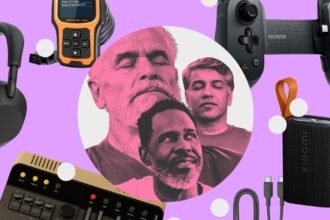This week at Google I/O, executives revealed a slew of new AI technologies, but the names are getting seriously tangled. Is it Deep Think or Deep Search? And what about the revamped subscription service, now called Google AI Pro, formerly known as Gemini Advanced, and the new AI Ultra plan? The confusion continues with Gemini’s presence in Chrome and its distinction from AI Mode in search. Project Starline has been rebranded to Google Beam, alongside a lineup that includes Gems, Jules, Astra, and Aura. With product names overlapping in bewildering ways, it’s clear that Google needs to reign in the chaos before we all lose track of our DeepMinds.
To be fair to Google, we’re at least not dealing with “Bard,” which was once the name of its AI chatbot during the 2023 chatbot craze. In response to OpenAI launching ChatGPT, Google rushed to release its own offering, naming it Bard without much forethought. Thankfully, the company pivoted to the more fitting Gemini, integrating Duet in the process—a good call indeed.
The presentations at Google I/O this week underscored how wildly naming conventions have spiraled out of control. We have Gemini 2.5 Pro Deep Think for tackling complex math and coding problems, developed by DeepMind, Google’s AI research wing. Then there’s Deep Search, linked to the new AI Mode for Google Search, and Search Live, enabling users to ask questions about objects by pointing their cameras. But don’t confuse it with Gemini Live, which offers similar functionality. Oh, and Google Lens still exists, which adds yet another layer of complexity.
We also have Veo, Google’s image generation model, and Flow, an AI tool for video editing, plus Flow TV, where you can watch others interact with bizarre AI-generated videos. Vertex, Lyria, and Imagen might sound like categories for baby names from 2007, but they are part of the same convoluted landscape. With a variety of Gemini iterations, including a multimodal AI assistant that shouldn’t be confused with Project Astra—which is also a multimodal assistant that isn’t available yet—we have Project Mariner, similar to a website navigation tool but oddly demoed with tickets for a Cincinnati Reds game, leaving Mariners fans confused.
I do empathize with Google as it navigates the challenges of developing and marketing breakthrough technologies live. CEO Sundar Pichai referred to the rapid product rollout pace as “relentless,” as the company faces mounting pressure from OpenAI, Meta, and its shareholders to release AI features quickly. Perhaps this urgency doesn’t allow for much time to devise clever naming strategies.
However, this also highlights a recurring issue at Google: different teams developing similar technologies without adequate communication. This leads to multiple chat apps with slight variations and a plethora of ways to implement AI for tasks like shoe shopping. Incidentally, Google is eager to assist you with these AI shopping options.
It’s amusing that we’re discussing Google—the company whose name has become synonymous with online searches. It stands alongside “Kleenex” in terms of instant recognition. Yet, the name “Google” now feels like a relic from a time when a few quirky innovators transformed our web experience. As









